Dumb and Dumber
America has long had a strain of anti-intellectualism running through its society. This gets expressed in all kinds of ways. People know the names of celebrities and sports figures. They idolize them. They know very few intellectuals. The cool kids in school are never the brainy ones, unless they also happen to be great at sports. Epithets like nerd, egghead, and even intellectual are not compliments. Of course, Americans are quite generally happy to embrace the technologies created by these nerds, eggheads, and intellectuals, technologies that vastly improve their lives. Yet year after year, decade after decade, Americans devalue intellectuals in general, and scientists in particular.
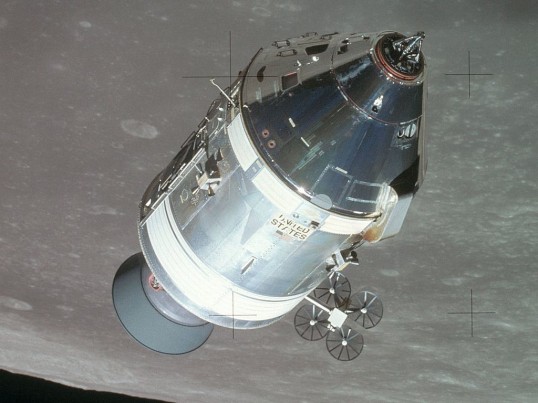
There was a bit of a respite from this in the mid 20th century, after the launch of Sputnik by the Soviet Union. America went into a virtual panic over the fact that this supposedly backward, communist country had achieved such an advanced technical feat. Immediately there was an emphasis on education in general, and science fields in particular. But as America beat the Soviet Union to the moon, and high profile assassinations made many Americans cynical about the future, this push for education faded. Fundamentalist churches spread across the country, many of them teaching a prosperity gospel. You didn’t need an education, they said. In fact, most of them vilified higher education, as a bastion of secular, ungodly forces. After years of dramatic increases in the percentage of Americans obtaining Bachelor’s degrees, between 1975 and 1980 that number actually declined sharply. And over the next 20 years, the percentage of Americans receiving Bachelor’s degrees didn’t increase at all.
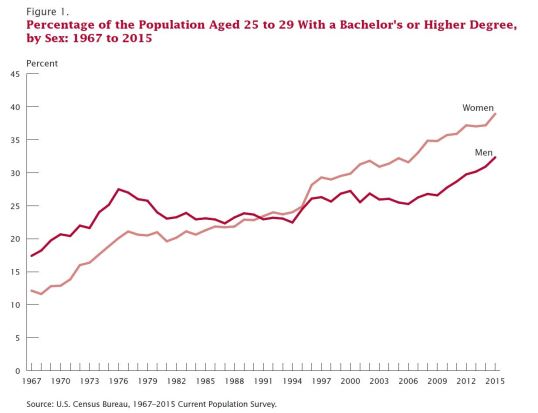
Although the percentage of Americans obtaining higher degrees has finally begun to increase in recent years, to this day only about a third of the population is doing this, leaving the majority of the population with only high school or very limited college. “So what?” you might ask. This has always been the case – most Americans don’t go to college. But the difference now is that we live in a world of mass communication and sophisticated persuasion techniques. Meanwhile, fundamentalist religion has become very political, and ideas that would have been considered backward and obsolete in the mid 20th century, even by mainstream religious institutions, are now commonly espoused by U.S. senators and congressmen.

The ignorance of the average American concerning science, literature, philosophy, and history is appalling. Only 1 out of 4 Americans can name more than 1 of the 5 freedoms guaranteed in the first amendment to the Constitution. Only 1 in 5 know how many senators there are. Considerably less than HALF can name the 3 branches of the federal government! Americans are ignorant of even recent AMERICAN history. Phrases like “southern strategy,” “morning in America, “contract with America,” and “mission accomplished” are very familiar to journalists, yet are completely lost on the average American. All of these phrases reflect events that have had huge effects on everyone’s lives, yet Americans are oblivious.

About a quarter of Americans think the sun orbits the earth. Almost 1 in 10 do not realize that their cells contain a genetic code. More than 1 in 3 have no clear idea of how old the earth is. Almost 30 percent cannot find the Pacific Ocean on a map. How many Americans even know what the word modernism refers to, let alone post-modernism? How can you possibly understand the United States if you have no understanding of the Age of Reason?
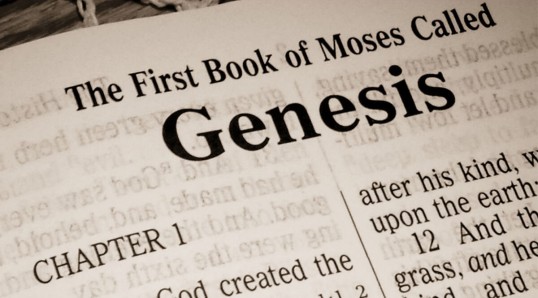
Probably the most dramatic survey results are obtained on scientific questions related to the Biblical story of Genesis. More than 40% of Americans believe that human beings were created in their present form, and about the same number believe that this happened in the last 10,000 years, contrary to an absolute mountain of evidence to the contrary. But the survey numbers change dramatically depending on how you ask the question. If you ask “Is the earth less than 10,000 years old?” 18% of Americans say yes. Yet if you ask whether God created the earth and humans less than 10,000 years ago, 40% of Americans say yes. Mainstream Christian churches have long ago accepted the incontrovertible evidence that the earth is billions of years old. But a huge proportion of the American population has fallen under the influence of religious fundamentalists, most of whom not only object to higher education, but often object to public education in general.

And so here we are. The push for education following the launch of Sputnik was an anomaly. The American economic system depends on large numbers of poorly educated, relatively unskilled worker/consumers. It’s important to realize that the tremendous scientific and technological advancement of the 20th century was built on cheap oil. Until 1970, the United States was the greatest oil producer in the world. Its manufacturing powerhouse was a huge factor in the outcome of World War II. Well-paying, unionized manufacturing jobs, such as those in the auto industry, did not require a lot of education. As oil production in the U.S. began to decline in the 1970’s, and Asian cars invaded the American market, many manufacturing jobs disappeared. They were replaced by low-paying service jobs. Vast numbers of Americans have been left with working in supermarkets, supercenters, and restaurants. The retail industry alone accounts for more than a third of American production. And the disparity in income between those who are educated and those who aren’t has been steadily increasing. In 1965, the average American with a Bachelor’s degree made only 24% more than the average person with a high school diploma. In 2015, the average holder of a Bachelor’s degree made 66% more – and in fact, the average income of Americans having only a high school diploma has actually declined! Furthermore, the average American with a 2-year Associate’s degree now only makes about 7% more than one with only a high school diploma. In 2015, the average income of an American with 2-year Associate’s degrees was less than that of an American with only a high school diploma in 1965!
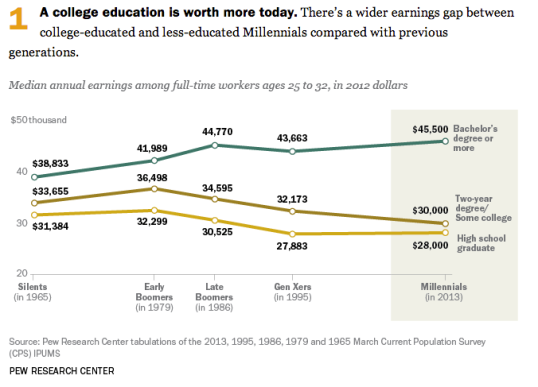
Why is there such a disparity in income between those with 2-year Associate’s degrees and those with 4-year Bachelor’s degrees? Because the jobs that require Bachelor’s degrees (or more) are jobs that require critical thinking and analytical skills – engineer, scientist, doctor, lawyer. Such abilities are always in demand. A 2-year Associate’s degree often amounts to little more than training to do a very specific task – designing web sites, for example, or working as a teacher’s aide. In fact, some jobs in supermarkets, such as that of a pricing manager, may require more analytical and multitasking skills than many jobs requiring an Associate’s degree. But engineering, science, medicine – that’s a completely different story. And therein lies the key.

If your knowledge and skills are in demand, you have leverage. The person who wants those skills has to pay you well and give you good benefits. But there’s more to it. That very knowledge and skillset – analytical ability, broad knowledge, critical thinking ability – this is exactly what gives people a low tolerance for being exploited. They cannot be bamboozled by clever wordsmanship or questionable claims. Knowledge is power, and critical thinking skills more powerful still. The employer has to share power with workers. Naturally the employer would like to do otherwise – pay as little as possible, overwork employees, minimize benefits. They simply can’t get away with it. If a given employer is unwilling to be reasonable, their employees will leave and find one who will. This sort of thing goes on all the time.

Not having a strong educational background gives people the feeling that they are powerless against their employers, and makes them vulnerable to all kinds of hucksterism. Giving poorly educated workers more knowledge and the skills of critical thinking will only make them less tolerant of exploitation, and give them the power to do something about it. Giving poorly educated consumers such skills would mean whole industries, religious organizations, and political parties would cease to exist. It would make it harder to sell them nutritional supplements that do nothing for them, religious indoctrination that does nothing for them, and political ideology that does nothing for them. Higher education has been under fire since the end of the space race.
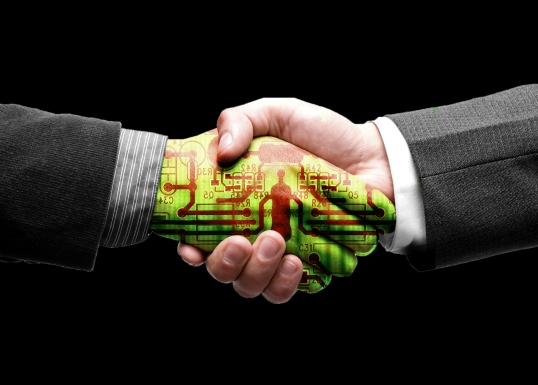
The changes that occurred in the Space Age happened not because high school graduates became better educated. They happened because far more people went to college. The situation may be changing again now, after a 40-year slump. Over the next 20 years, we will likely see much more automation. In recent years, we have seen increasing numbers of Americans going to college, as low-skilled jobs disappear and their wages stagnate or even decline. In the future, low-skilled jobs will probably disappear at tremendous rates. But high-skilled jobs may also disappear, at even greater rates. Jobs like stock broker, insurance adjuster, and tax assessor may give way to expert systems that can do these tasks far more cheaply and effectively. Any job that requires an expert, but very little physical labor, may very much be in danger. At some point an economic revolution is inevitable. When “work” is something that people no longer associate with human beings, hard questions about production, wealth, and ownership will have to be answered.
http://www.pewsocialtrends.org/2014/02/11/the-rising-cost-of-not-going-to-college/
http://www.wired.com/brandlab/2015/04/rise-machines-future-lots-robots-jobs-humans/
